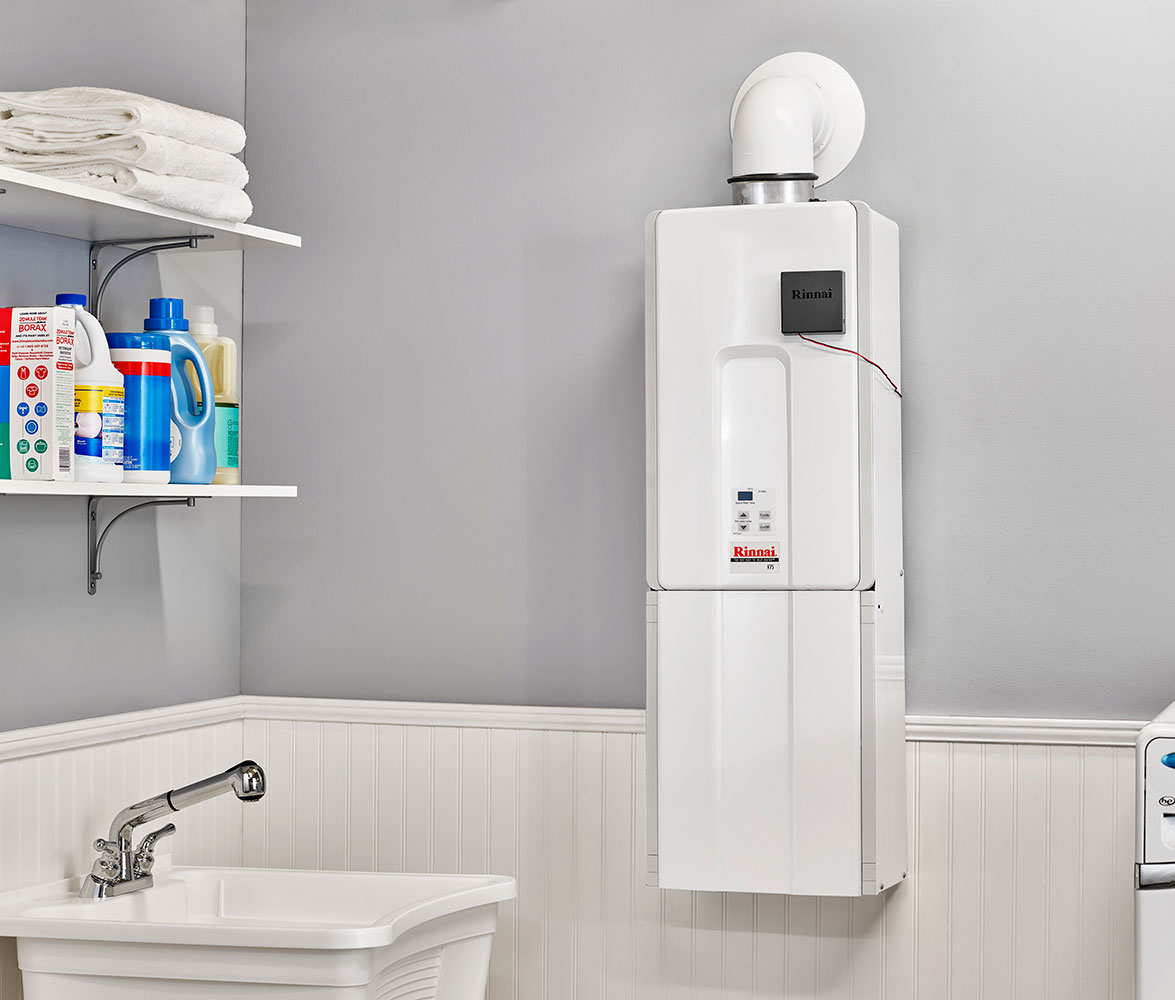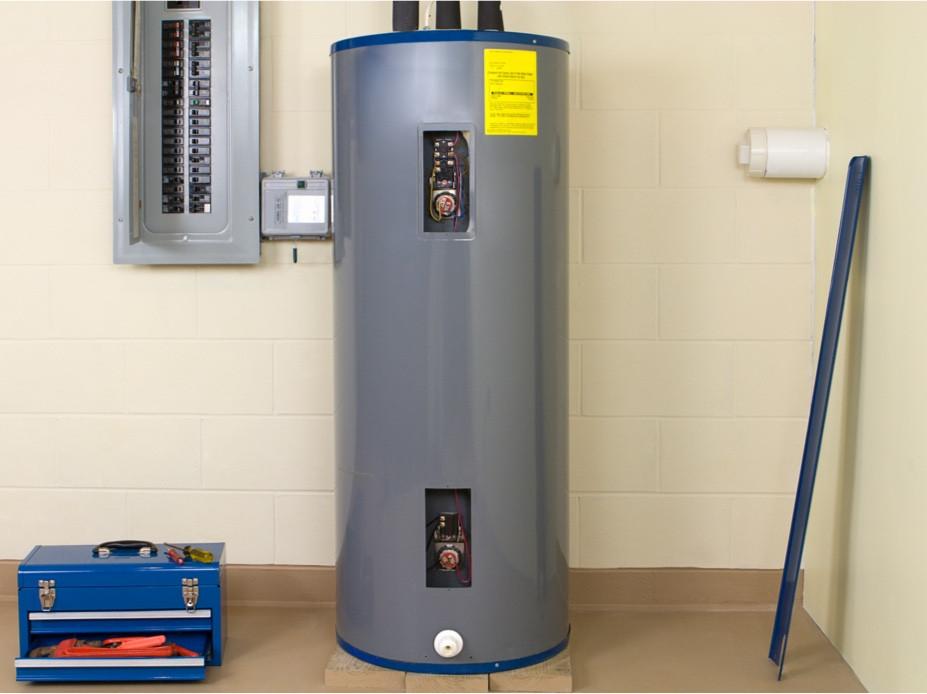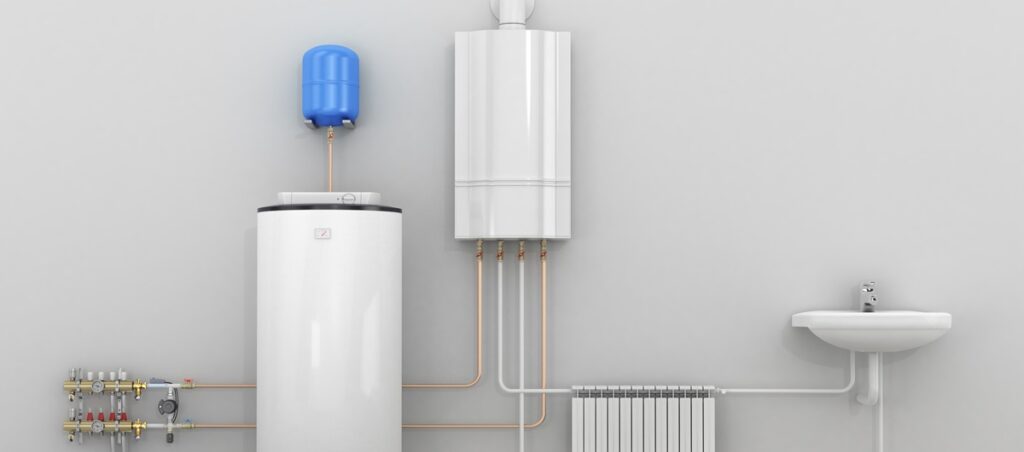Water heaters have an important function in households, since hot water is used for activities like showering and cooking. Water heating can represent a significant energy expense, especially in places with cold weather. However, hot water costs are determined in great part by the type of heater and the energy input used.
Domestic hot water systems can be classified by their configuration or their energy input. Based on their physical configuration, they can be classified as storage heaters or tankless heaters. The energy input is normally electricity or a fossil fuel like natural gas or propane.
Comparing Storage Heaters and Tankless Heaters

As their name implies, storage heaters can be identified by their insulated hot water tank. The water is kept at a specified temperature, to be used by household members when needed. On the other hand, a tankless heater does not store hot water. Instead, the water is quickly heated to the required temperature as it flows through the unit.
The main disadvantage of storage heaters is consuming energy to keep the water hot. Good insulation minimizes this heat loss, but it cannot be eliminated completely. Tankless heaters are more efficient, since they eliminate the standby losses associated with storing hot water.
In spite of their lower efficiency, storage water heaters have two key advantages:
- The hot water in the tank is available even if the heater’s energy source is temporarily interrupted. For example, an electric storage heater can provide hot water during a blackout if the tank is filled in advance.
- With a storage heater, there is no need to heat plenty of water in a short time. This reduces the wiring size for electric heaters, and the service connection for gas heaters.
Tankless heaters are more efficient overall, but they consume energy in short bursts due to how quickly they must heat water. This leads to an increased wire size if the unit is electrical, and a larger gas connection if the unit uses combustion.
Energy Sources for Water Heaters: Electricity and Fossil Fuels
Water heaters also differ in terms of the energy input used. Choosing between electric power and fossil fuel combustion is a very important decision when purchasing a hot water system.

Electric water heaters are easier to install, since there is no need for a venting system to remove combustion gases. Electrical installations are also more compact than gas service connections.
Combustion heaters normally have a lower operating cost, but the installation is more complex. A well designed venting system is critical, since combustion gases become toxic when they accumulate.
- Electric water heaters can be classified into two subtypes, with different performance features. Resistance heaters simply apply voltage to an electric resistance to produce heat. The process is simple but the operating cost is high, especially in places with expensive electricity. On the other hand, heat pumps use electricity to run an inverted refrigeration cycle, which is much more efficient than resistance heating. Due to their complexity and higher efficiency, heat pumps are normally more expensive than resistance heaters.
- Combustion heaters vary in terms of the fuel used, but the most common options are natural gas, heating oil and propane. Natural gas has the advantage of being delivered by pipe as a utility service, while the other fuels must be delivered by truck and stored locally. Natural gas is the most reliable option, since gas distribution systems operate normally under harsh weather, while truck deliveries may be compromised.
When choosing between domestic hot water systems, the best option changes depending on local conditions and personal preferences. For example, if you want to avoid fossil fuels as a lifestyle choice, an electric heat pump is recommended. Natural gas normally offers the lowest water heating costs. However, the most efficient heat pumps can compete with the operating cost of natural gas.
Author: Michael Tobias, PE, LEED AP, CEM.
Michael Tobias is the founder and principal of Chicago Engineers, an Inc 5000 Fastest Growing Company in America. He leads a team of 30+ mechanical, electrical, plumbing, and fire protection engineers from the company headquarters in New York City; and has led over 1,000 projects in Chicago, New York, New Jersey, Pennsylvania, Connecticut, Florida, Maryland and California, as well as Singapore and Malaysia.






